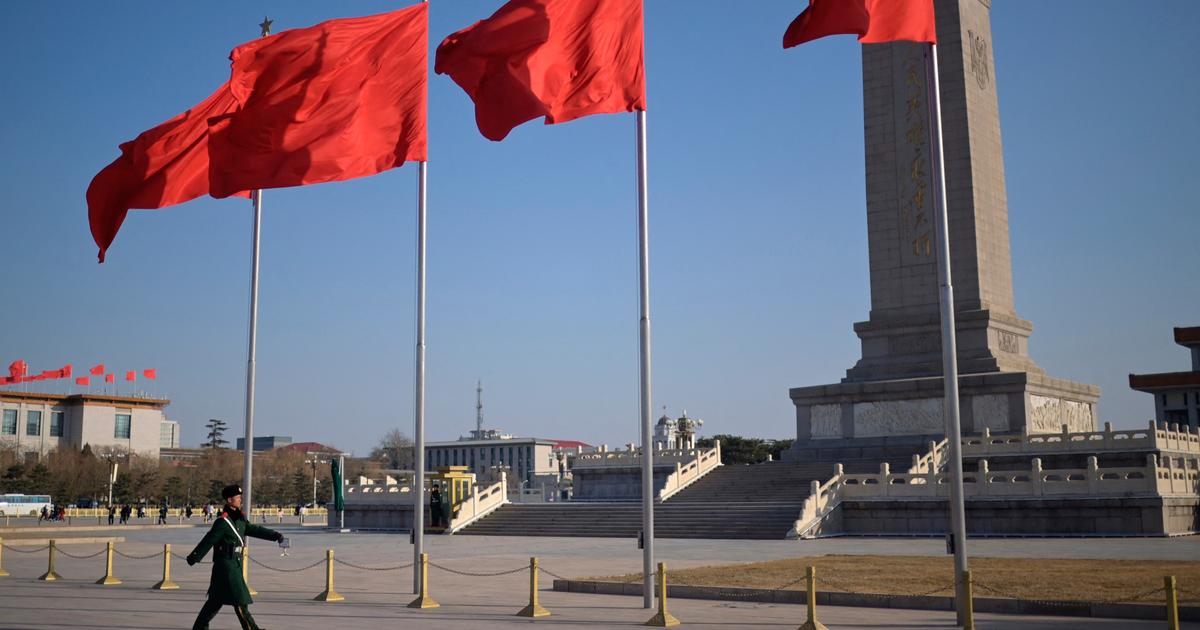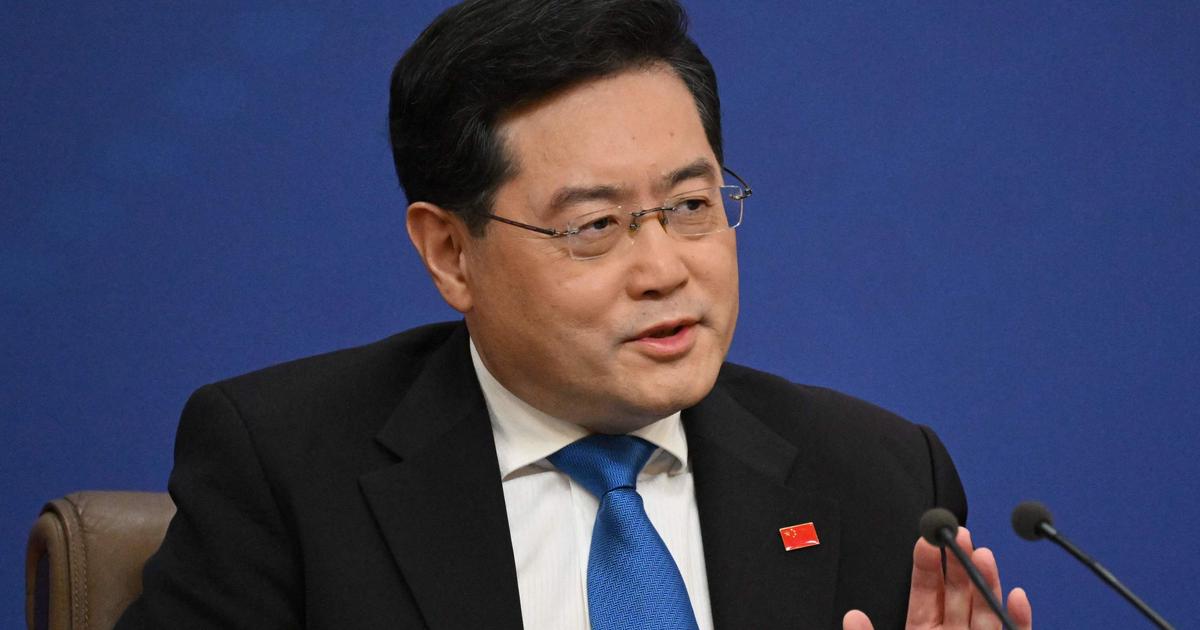In Xi Jinping's many important speeches, the word "common prosperity" is almost everywhere.
In particular, at the Sixth Plenary Session of the 19th Central Committee of the Communist Party of China, the word "common prosperity" was written into the historical resolution of the Communist Party of China, the "Resolution of the Central Committee of the Communist Party of China on the Party's Centenary Achievements and Historical Experience", which appeared 8 times in total.
Then, it was also written into this year's "Government Work Report".
Prospects of the 20th National Congress of the Communist Party of China | One Core, Two Revolutions, Three Key Words, Prospects of the 20th Congress of the Communist Party of China | Xi Jinping frequently mentions "historical confidence" and "five self-confidence" or will be released
If viewed from another dimension, Xi Jinping pointed out in his speech at the 10th meeting of the Central Finance and Economics Committee on August 17, 2021: "Common prosperity is the essential requirement of socialism and an important feature of Chinese-style modernization." "Socialism" And "modernization" is the key word of the CCP's second centenary. Therefore, it is judged that in the second centenary, "common prosperity" will definitely become the center of the work of the CCP and the Chinese government, just like economic construction in the era of reform and opening up. And in the Mao era the class struggle was at the center.
"Common prosperity" is China's "new strategic" direction.
(file picture)
The Political Bureau of the Communist Party of China held a meeting on August 30 and emphasized that "The 20th National Congress of the Communist Party of China is a new journey for the whole party and the people of all ethnic groups to build a modern socialist country in an all-round way and march towards the second centenary goal. A very important meeting at a critical time".
It is inferred from this that "solidly promoting the common prosperity of all people" will definitely be written into the report of the 20th National Congress of the Communist Party of China, which will open the "second century".
The revision of the party constitution is also an agenda item of the 20th National Congress of the Communist Party of China. It is believed that "solidly promoting the realization of common prosperity for all people", as the original intention of the party's ruling, as "new concepts, new ideas and new strategies" will also be included in the party constitution with high probability.
Why are the Chinese obsessed with common prosperity?
Common prosperity, in the literal sense, means that all people live a happy, prosperous and beautiful material and cultural life.
Common prosperity has always been the pursuit of the Chinese since ancient times.
In the perspective of traditional Chinese governance, benefiting the people and enriching the people has always been a key element.
From the perspective of the law of social development, common prosperity is the material basis for social progress.
"Book of Changes" said that "the great virtue of heaven and earth is called birth", and Confucius said, "What does the heaven say? The four seasons move, the hundred things are born, and what does the heaven say?" Carrying all things and cultivating life is the great virtue of nature.
Guanzi said, "The wealth of the world benefits the people of the world." Mencius said, "The people are the way. Those who have permanent property have perseverance, and those who do not have permanent property have no perseverance." Accumulation of wealth and fair distribution are the way of social governance.
"Rich and noble are what people want." The pursuit of a better life is human nature; "Wealth is something that can be sought, even though I am a man of the whip." behavior that should be promoted.
From the perspective of social governance, common prosperity is the foundation of a stable governance.
The excellent traditional Chinese culture believes that an ideal society should not only protect the people's right to pursue prosperity, but also provide conditions for the prosperity and well-being of the people, especially the people at the bottom.
Xunzi said, "The poor will be poor, and the rich will be rich."
People living in turmoil, extreme poverty and injustice for a long time cannot provide long-term impetus for social development.
From the perspective of social construction, common prosperity is the essence of a better life.
"On the way of the Dao, the world is for the public." As a more advanced stage of development after the traditional well-off society, the Datong society is the most ideal social picture of the ancient Chinese sages.
"Choose virtuous and capable people, keep faith and cultivate harmony. The old people are not only relatives, not only their sons and their sons, so that the old can die, the strong can be useful, the young can grow, and the widows, loneliness, and sicknesses are all supported."
It can be seen that in the history of Chinese civilization, common prosperity has always been the fundamental interest of the general public and a key element of social governance.
The people-oriented thought of "the people are the foundation of the state, and the state is the foundation of the state" is one of the essences of traditional culture, and it is the principle by which the feudal monarch restrains himself. “Minben” is more often an instrumental role in maintaining governance rather than a value role as the goal of governance.
Therefore, the dominant status of the people has never been established in old China, and the ideal of common prosperity has never been realized.
After the establishment of the Communist Party of China, the original mission was to seek happiness for the people and rejuvenation for the Chinese nation.
From lack of food and clothing to a well-off society, to today's "new era", common prosperity has gradually improved with economic and social development.
On the whole, from the reform and opening up to the 12th National Congress of the Communist Party of China (1979-1986), common prosperity was clearly defined as the fundamental principle of socialism, and common prosperity was not equal to simultaneous prosperity; Continue to improve the distribution system and expand the connotation of common prosperity; the 16th to the 17th National Congress of the Communist Party of China (2002-2012) has incorporated redistribution into the framework of common prosperity, enriching and clarifying important means to achieve common prosperity; Substantial steps have been taken for common prosperity, and the timetable and measures have become clearer and more specific.
The CCP's value pursuit of achieving common prosperity remains unchanged, but the way to achieve it changes with the times.
(Photo by Liang Pengwei)
"Let the people live a happier life is our party's unswerving goal, and achieving common prosperity is the essential requirement of the leadership of the Communist Party of my country and our socialist system," Xi said.
It can be seen that the CCP's exploration of common prosperity has gone through a long process of development.
The tenth meeting of the Central Finance and Economics Commission chaired by Xi Jinping was the first comprehensive interpretation of "common prosperity".
However, the expression of "common prosperity" can still be mainly based on inheritance. On the basis of inheritance, there are certain innovations in the expression. There is neither a new policy "turned out", nor does it mean that the orientation of the relevant policy has undergone a fundamental change.
The measures related to "common prosperity" also mainly reflect the continuity of the policy.
It is mainly reflected in four aspects: continuing the overall idea of income distribution reform of “raising, expanding, raising, and cracking down”, promoting the formation of an olive-shaped distribution structure with large middle and small ends; Promote and achieve common prosperity in stages; correctly handle the relationship between efficiency and fairness, allow some people to get rich first, bring wealth first, and help later get rich; enhance the balance of regional development, consolidate and expand the achievements of poverty alleviation, and comprehensively promote rural areas Revitalize.
If combined with the "Opinions on Supporting Zhejiang's High-Quality Development and Building a Demonstration Area for Common Prosperity", it can be seen that the CCP believes that poverty alleviation and increasing residents' income are the basic prerequisites for achieving common prosperity.
Achieving fuller employment is a necessary condition for achieving common prosperity.
Deepening the reform of the income distribution system and improving the fairness of income distribution are important ways to achieve common prosperity.
It is necessary to promote the coordinated development of urban and rural areas and regions, to achieve equal access to public services for citizens, and to speed up support for cultural construction for common prosperity.
However, up to now, the relevant quantitative standards have not been clearly defined at the national level to achieve common prosperity.
Three Challenges of "Shared Prosperity"
As China is entering an era centered on common prosperity, it is very meaningful to clarify the concept of common prosperity, explore the path to achieve common prosperity, avoid potential risks, and make common prosperity sustainable.
After all, the realization of common prosperity is bound to be a long way to go and is full of various risks. A little carelessness may backfire.
After building a moderately prosperous society in an all-round way, how to achieve sustainable development and achieve common prosperity has become the top priority on the CCP's desk.
(AP)
First, what is common prosperity?
Han Wenxiu, deputy director of the Office of China’s Central Finance and Economics Commission, explained: “Common prosperity is the prosperity of all the people, not a few; it is the prosperity of both material and spiritual life of the people, not just material prosperity and spiritual emptiness; Common prosperity with a certain gap is not equal wealth with uniform egalitarianism.”
This explanation should be said to be very sound and accurate.
But it has to be said that there is still concern that "common prosperity is a one-size-fits-all "average wealth".
Although it was pointed out as early as the "Decision of the Central Committee of the Communist Party of China on the Reform of the Economic System" at the Third Plenary Session of the Twelfth Central Committee, common prosperity does not mean and cannot be a complete average.
The communique of the tenth meeting of the Central Finance and Economics Commission also pointed out that common prosperity "is not a uniform egalitarianism".
Since it is common prosperity, it is naturally the prosperity of all the people, so that everyone can share the dividends of social development fairly.
However, because everyone has different intelligence, ability and hard work, the distribution of wealth in any society cannot and should not be egalitarian or cauldron. Any attempt to distribute wealth with egalitarianism or cauldron will only end in failure and bring for worse results.
China has learned a painful lesson and profound experience on this point, and has been vigilant since then. Therefore, what we call common prosperity today is not equal wealth, but a fair distribution while respecting differences and freedom as much as possible. Wealth, and build a more optimized and fair olive-shaped social structure.
In this regard, the CCP must let the society have a clear understanding, especially the business community.
Enterprises are the foundation of economic activity.
At the beginning of last year, the concept of "three distributions for common prosperity" was proposed.
When the slogan was put forward, leading companies such as Ali and Tencent spontaneously set up a "common wealth" fund. Combined with the purging of these companies, the business owners watched and wondered whether they wanted to fight the rich to help the poor. Is it about egalitarianism?
In fact, the three distributions are the unity of three principles: the principle of efficiency, the principle of fairness, and the principle of morality.
In fact, it emphasizes both the efficient creation of the cake and the better distribution of the cake, which is the theory of modern economics.
The result is a moderate increase in the income of all social classes, which is called "common prosperity".
"Common prosperity" does not mean that everyone's wealth is the same and will always be different, but emphasizes that the income of all social classes can increase the development of the country accordingly, which is called "common prosperity".
The theory of three distributions and common prosperity do not mean fighting the rich to help the poor, nor do they mean egalitarianism.
But obviously, in the context of "preventing the disorderly expansion of capital", there are many misunderstandings that make entrepreneurs nervous.
Issues such as this must be clearly explained, especially to let the business community know that it will not rob the rich to help the poor, and will not engage in egalitarianism. Otherwise, everyone has bad expectations for the future, and of course it is impossible to invest and increase consumption.
This is not good for social development.
At the beginning of last year, the concept of "three distributions for common prosperity" was proposed, which caused a lot of controversy.
(file picture)
Second, how to achieve common prosperity?
According to the Central Financial and Economic Commission, it is to "create more inclusive and equitable conditions for the people to improve their educational attainment and enhance their development capabilities, smooth the channels for upward mobility, and create opportunities for more people to become prosperous." The rational distribution pattern enjoyed by all" and "focus on strengthening the basic, inclusive, and bottom-line livelihood security construction", these are all policy declaration levels, and the general direction is clearly written, but how to effectively implement the specific implementation stage depends on the is a formidable challenge.
After all, policy announcement and implementation are often two different things.
Just like what the Central Finance and Economics Commission said, "creating more inclusive and fair conditions for people to improve their education level and enhance their development capabilities", this is a very realistic expression, but it is too difficult to implement.
For example, the recent "double reduction" policy in China's education has a very good original intention and concept, but it has caused dissatisfaction among a large number of parents. The reasons are that the stratum is solidified, the regional development and the distribution of educational resources are seriously unbalanced, the proportion of education investment in GDP is low, and social evaluation. Under the reality of a single mechanism, the "double reduction" policy of only cutting the supply side will force both demand and supply to transfer to the underground black market, making education and training return from the era of large-scale chain chains to the era of tutoring, and making it more difficult for the middle class to jump up .
In addition, there should be a clear understanding in the implementation process: distribution reform is the focus of common prosperity, but it cannot be simply considered that distribution reform is the entire content of common prosperity.
Moreover, don't talk about fairness with wealth, not efficiency.
Especially in the field of primary distribution, which is generally concerned by the market, Common Prosperity still emphasizes the principle of distribution according to the contribution of factors, and focuses on efficiency and the role of the market.
The 14th Five-Year Plan of the Communist Party of China also pointed out that "the policy system for allocating factors according to factors will be improved, and the mechanism for determining the remuneration of various production factors by the market will be improved."
It must be made clear that "common prosperity" still focuses on efficiency and allows the market to function.
Deng Xiaoping pointed out that we adhere to the socialist road, and the fundamental goal is to achieve common prosperity.
In the past, egalitarianism and eating from a "big pot" actually resulted in common backwardness and common poverty.
(Getty Images)
It can be seen that in the process of promoting common prosperity, how to ensure good goals and concepts with moral commanding heights will also achieve good results in the implementation process, which is extremely challenging.
Third, how to avoid potential risks in the process of realizing common prosperity?
In addition to egalitarianism or cauldrons, there are two risks: populist wealth hatred and an over-the-top, one-size-fits-all approach to remediation.
Today, in the process of promoting common prosperity, China should of course control capital, regulate the operation of capital, and regulate the excessive income of the rich, but this is by no means the same as killing the rich to help the poor or populist hatred for the rich.
Just like Jack Ma and Alibaba, problems should of course be dealt with in accordance with the law, but at the same time, we must be wary of some populist haters for the rich who label Jack Ma and Alibaba as capital of all kinds.
The same is true for the rectification measures of the Chinese government. It is indeed necessary to make great efforts to rectify all kinds of chaos, but at the same time, we must pay attention to wisdom and methods, and consider the bearing capacity of the society. and market panic.
How to adjust this proportion and how to achieve good expected results is indeed a test of the ability of the Chinese government.
In any case, China's entry into an era centered on shared prosperity is a major shift that is welcome.
Since the birth of human society, so far no country has been able to achieve common prosperity. The ideal of socialism has remained at the ideal level for a long time. Once China can achieve healthy and sustainable common prosperity after hard work, it will be very important for China and the world. Said to be of great historical significance.
Needless to say, this is bound to be an extremely difficult challenge, for which Chinese society should explore the establishment of an inclusive and open public discussion environment that can brainstorm ideas.
Whether China can realize the ideal of common prosperity is still unknown.
But since this is an ambitious and ambitious goal that concerns the vital interests of the vast majority of people, everyone may wish to actively participate in it and seek a better future.
It is expected that after the 20th National Congress of the Communist Party of China will "solidly promote the common prosperity of all people", which will be solidly implemented at the implementation level.
Prospects of the 20th National Congress of the Communist Party of China | One Core, Two Revolutions, Three Key Words, Prospects of the 20th Congress of the Communist Party of China | Xi Jinping frequently mentions "historical confidence" and "five self-confidence" or will be released









/cloudfront-eu-central-1.images.arcpublishing.com/prisa/2C5HI6YHNFHDLJSBNWHOIAS2AE.jpeg)



